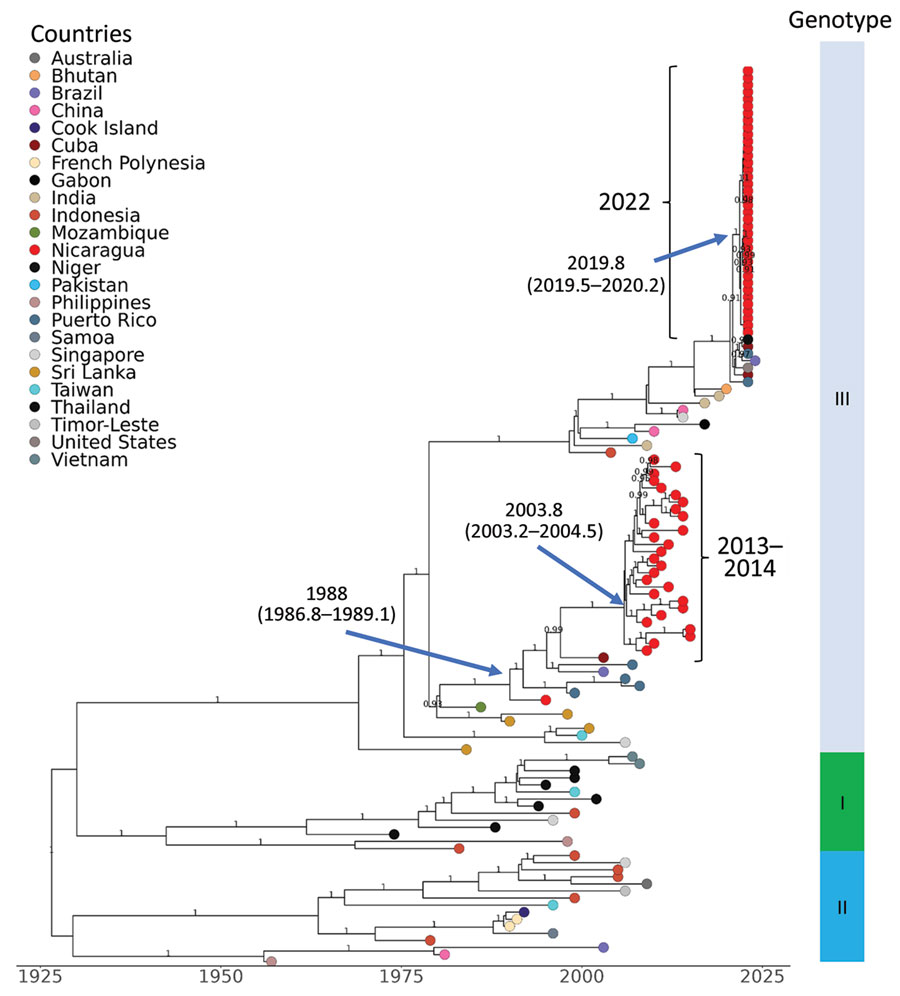Volume 30, Number 6—June 2024
Research
Introduction of New Dengue Virus Lineages of Multiple Serotypes after COVID-19 Pandemic, Nicaragua, 2022
Figure 3

Figure 3. Time-scaled dengue virus (DENV) serotype 2 maximum clade credibility tree, generated from 136 DENV-2 nucleotide sequences, showing emergence over time. Sequences are labeled by country of sample origin, indicated by colored circles, and include Nicaragua sequences (red) and publicly available sequences, as indicated. Nicaragua clades are indicated with square brackets labeled by year(s) of detection, including the DV-NI-3 clade. The time to most recent common ancestor (95% high probability density) is indicated at the nodes leading to Nicaragua clades. Genotypes are identified by vertical bar to the right. Posterior node probabilities are indicated at major nodes.
1These senior authors contributed equally to this article.
Page created: May 02, 2024
Page updated: May 22, 2024
Page reviewed: May 22, 2024
The conclusions, findings, and opinions expressed by authors contributing to this journal do not necessarily reflect the official position of the U.S. Department of Health and Human Services, the Public Health Service, the Centers for Disease Control and Prevention, or the authors' affiliated institutions. Use of trade names is for identification only and does not imply endorsement by any of the groups named above.